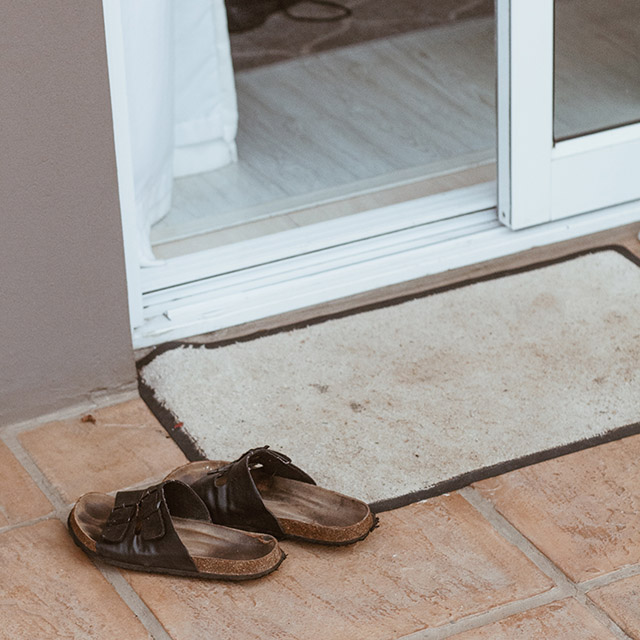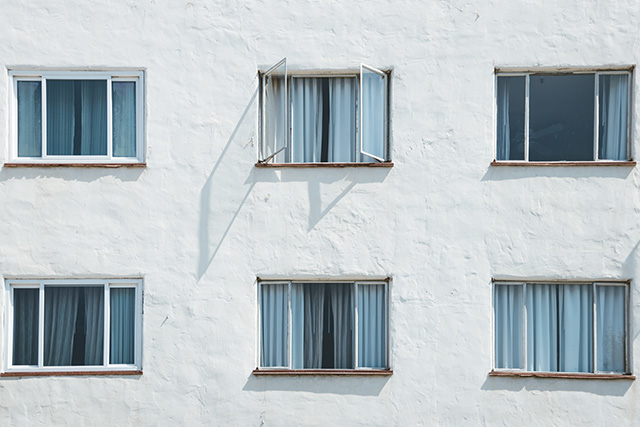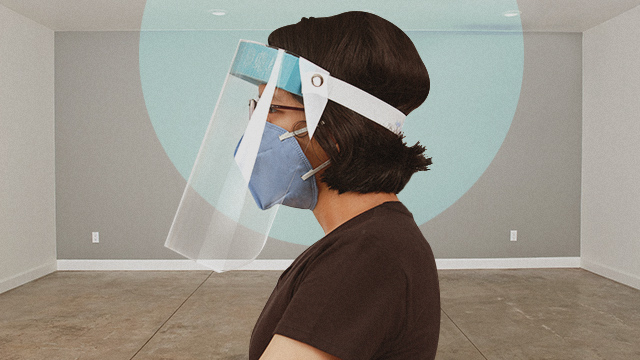On March 10, the Mandaluyong City government reported that they would be tightening the enforcement of health and safety protocols after COVID-19 cases in the city had doubled in the span of one week from 134 to 276. Many of these cases, according to Mayor Carmencita Abalos, are condominium residents. This resulted in stricter health protocols in the business district's residential buildings, which include the closing of common areas such as pools and gyms, and having floors where patients reside guarded.
You don’t have to panic if you live in a condo; however, you do need to exercise utmost care every time you need to step out of your unit. Here are a few things you can do to keep your space and yourself safe.
These are the safety tips that condominium residents need to know to protect themselves against COVID-19:
Have a sanitation area.

By now you probably already have a santitation area at home, but just to reiterate what this practice necessitates: Have a dedicated space by your front door where you can leave the dirty clothes you’ve worn and where you can quickly disinfect your bags and hands prior to taking a shower. Be sure to take off your shoes, too—if you have a foot bath, even better (you can make your own), but if you don’t, make sure to spritz your footwear (especially the soles) with your available disinfectant.
Air out your unit once in a while.

Condos don’t usually have centralized air conditioning, which is actually a pretty good thing during these times. While it’s tempting to always keep your windows shut and just have your AC or your electric fan run the whole day, it’s still important to let fresh air circulate in your unit once in a while.
Studies have shown that ventilation is important to reduce the spread of COVID-19. The Department of Health and Social Care in the U.K. recommends that "people open windows fully for short, sharp bursts of 10 to 15 minutes regularly throughout the day, or leave them open a small amount continuously."
Be aware of building notices and always ask for updates from the admin.
Don’t ignore the memos your admin has posted on the walls of your elevators. Take time to read them as they often contain announcements on protocol changes, as well AS news of any COVID patients currently in quarantine in your building. Moreover, be proactive by asking the admin about any updates you need to know about; more often than not, they’ll be more than glad to tell you, and if you find that they may be getting a bit lax, you can at least make suggestions on how they can improve their response.
Always wear your face mask and your face shield outside your unit.

Yes, even if you’re just going throw your trash down the garbage chute or pick up a delivery downstairs, you have to be responsible for yourself and show your care for those around you by doing so. Accordingly, expect your neighbors to do the same.
Avoid hanging out in common areas.
This one's pretty self-explanatory—the less contact you have with your neighbors, the better. In any case, if you need to drop by the lounge areas, gym, swimming pool, or any other common areas in your condo, make sure that you don’t take long.
Avoid inviting visitors.
As much as possible, avoid inviting people over especially if it's an unnecessary visit. Yes, it is a bummer, but it’s not just for your safety, but also for the safety of your visitor and of the rest of the residents in your building.
If you think you have contracted COVID-19, coordinate with your condo’s administration right away.

Each condo has a checklist of what to do in the event that a resident shows symptoms, which is why it’s very important to coordinate with your building admin right away if you suspect that you’ve caught the virus. They will then be responsible for informing other residents with whom you’ve been in close contact about it, while also keeping residents on other floors safe. They may also coordinate with the barangay and a nearby healthcare provider for the next steps so that you get the help that you need.
Hey, Spotters! Check us out on Viber to join our Community and subscribe to our Chatbot.
Source: Spot PH
No comments:
Post a Comment